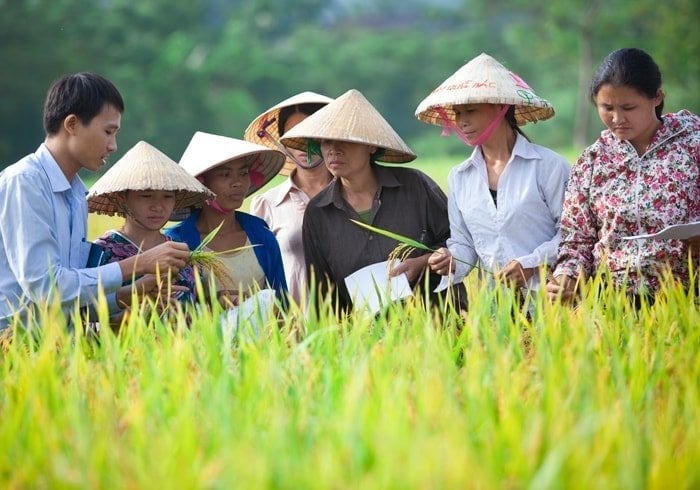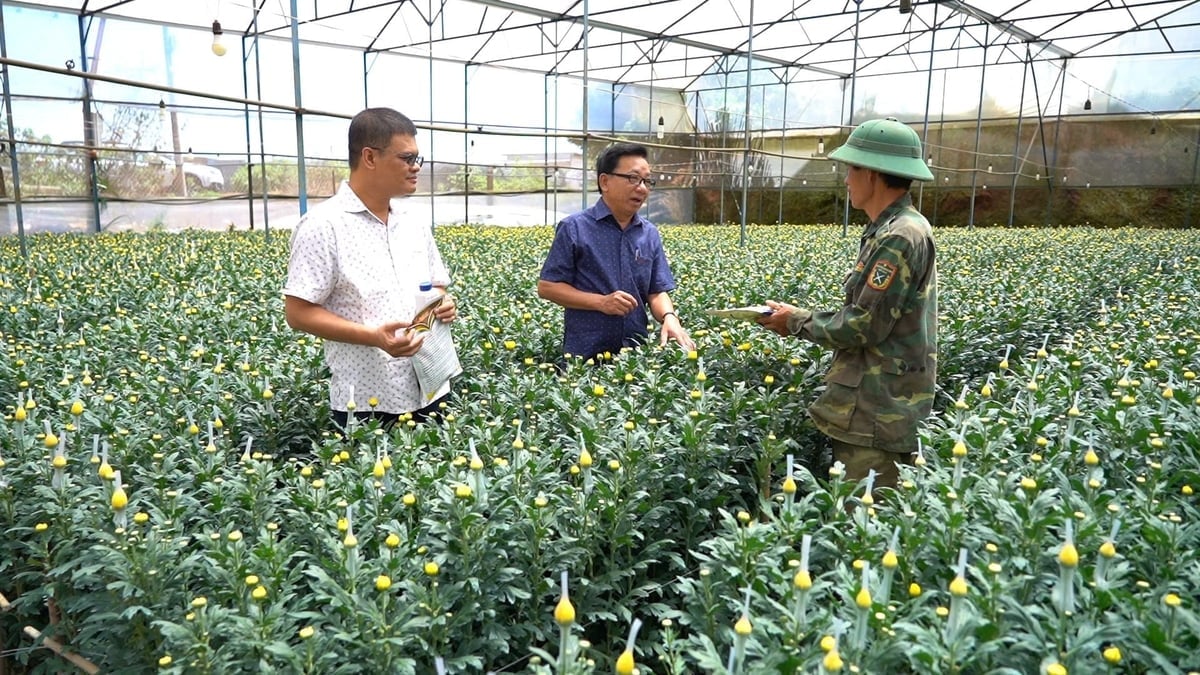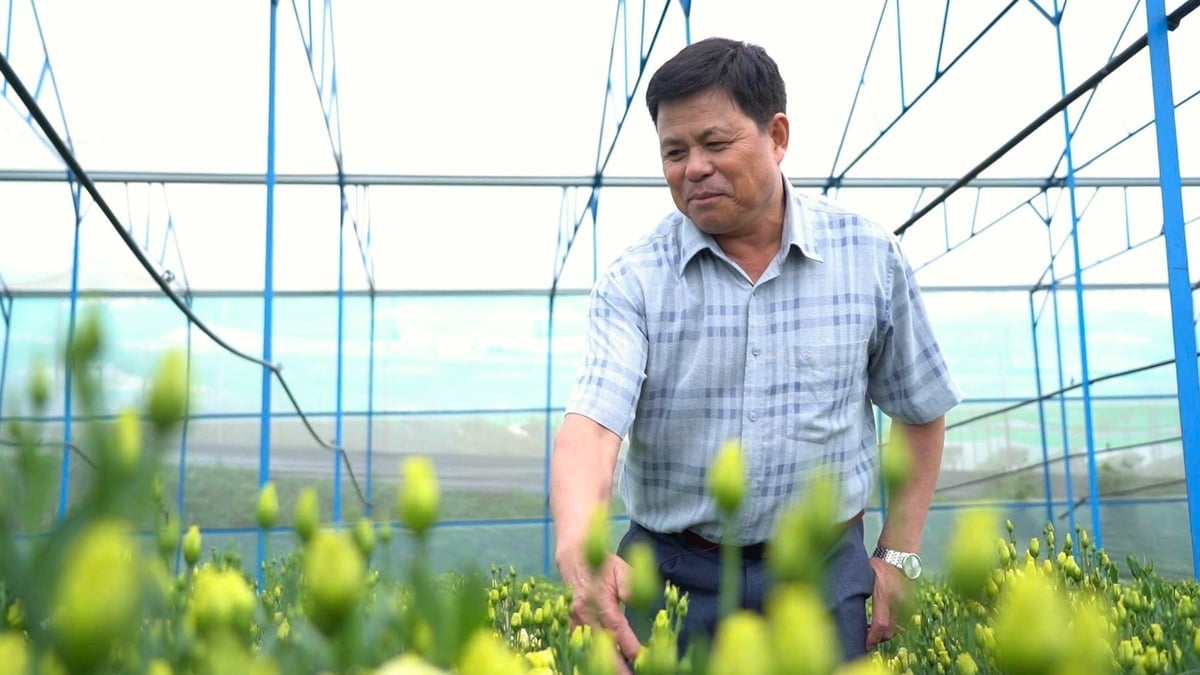September 29, 2025 | 02:07 GMT +7
September 29, 2025 | 02:07 GMT +7
Hotline: 0913.378.918
September 29, 2025 | 02:07 GMT +7
Hotline: 0913.378.918
CropLife International recently released the 2024 Annual Report of the Sustainable Pesticide Management Framework (SPMF). This is one of the key initiatives launched by CropLife since 2021 to support and promote the implementation of the International Code of Conduct on Pesticide Management (ICoC).

SPMF introduces a new approach to support countries in transforming their agricultural systems. Photo: CropLife Vietnam.
In 2024, the program made significant progress by expanding its implementation to Guatemala and Chile, marking its presence in Latin America. At the same time, it completed its initial deployment vision by selecting Indonesia and Colombia as the final two participating countries, bringing the total number to nine countries across Africa, Asia, and Latin America. The annual report highlights the progress made in 2024 in Kenya, Morocco, Egypt, Thailand, Vietnam, Chile, and Guatemala.
Through the SPMF, CropLife International members have committed 13 million USD to promote the sustainable use and management of pesticides, with a focus on low- and middle-income countries in the Global South. The program aims to support farmers in accessing innovations that expand their “farming toolbox” to adapt to the pressures of climate change, while also enabling a sustainable transition tailored to local production conditions and economic realities.

Mr. Lai The Hung (center), Vice Chairman of the Da Lat Flower Association, discusses the "4 Rights" principle in pesticide use with local farmers. Photo: CropLife Vietnam.
In Vietnam, the SPMF entered its second year of implementation as part of a five-year partnership (2023–2028) between the Plant Production and Protection Department (under the Ministry of Agriculture and Environment) and CropLife Asia. In 2024, the program achieved several key milestones, including organizing the first international conference on pesticide packaging management with the participation of over 120 experts, and hosting a dialogue on Extended Producer Responsibility (EPR) between the Department, the EPR Office, and relevant partners within the framework of the International Conference on Packaging Management.
The SPMF also supported the organization of a drone operation training and certification course for more than 30 field trial officers, continued its third year of safe pesticide use training in Dong Thap, and developed an online training platform for farmers and retailers. In addition, various technical cooperation activities were strengthened, including policy reviews, international knowledge exchange, and awareness-raising communication efforts targeting the broader public.
According to Mr. Dang Van Bao, Chairman of CropLife Vietnam, the joint efforts and shared responsibility between the public and private sectors are crucial to building an effective ecosystem for pesticide management.
It will also lay a solid foundation for the sustainable development of agriculture. This approach ensures long-term, balanced benefits for both farmers and businesses, while also meeting consumers’ expectations for safe and high-quality agricultural products.
“Based on the encouraging outcomes of the 2024 collaboration program, we are delighted and deeply appreciate the strong support and practical cooperation from the leadership of the Ministry of Agriculture and Environment and the Plant Production and Protection Department for CropLife Vietnam’s proposals and initiatives.
At the same time, we reaffirm our commitment to working alongside regulatory agencies to realize our shared vision of developing a responsible, multi-value-integrated agriculture that ensures food security and protects the ecological environment,” Mr. Dang Van Bao emphasized.

Da Lat farmers in a lisianthus flower garden nearing harvest. Photo: CropLife Vietnam.
According to Ms. Emily Rees, President and CEO of CropLife International, the key to sustainable pesticide management is enabling farmers to easily access a wide range of tools and solutions, especially in an increasingly challenging production environment. Public-private partnership models, with strong support from national governments, play a vital role in helping to realize this vision.
“In 2024, our member companies reaffirmed their commitment to the International Code of Conduct on Pesticide Management. The SPMF program is a clear demonstration of that commitment. I’m incredibly proud to be part of this initiative - a program with depth and long-term vision that is driving sustainable and systematic progress,” Ms. Emily Rees shared.
Emphasizing the program’s multi-stakeholder approach, Ms. Rees expressed her sincere appreciation to partners and governments in each participating country for helping to bring about meaningful change. Their contributions have played a crucial role in building scalable models for the adoption of best practices.
With its global vision and the positive outcomes recorded in 2024, the SPMF program is gradually establishing itself as a sustainable platform for realizing responsible pesticide management commitments. It supports farmers in accessing advanced farming practices and makes a meaningful contribution to the global goal of sustainable agricultural development.
Translated by Phuong Linh
![Unlocking the potential of marine aquaculture in Ho Chi Minh City: [3] Linking aquaculture with tourism](https://t.ex-cdn.com/nongnghiepmoitruong.vn/608w/files/huytd/2025/09/27/4147-bai-3-nuoi-bien-mo-loi-du-lich-111423_637-153508.jpg)
(VAN) Marine farmers are forming cooperatives and developing eco-tourism, helping aquaculture and seafood marketing become more efficient and sustainable.

(VAN) Applying high technology in marine aquaculture not only enhances efficiency but also helps protect the environment, reduce fishing pressure, and move toward a sustainable fisheries sector.

(VAN) Removing bottlenecks in marine economic institutions and planning will pave the way for robust growth of marine aquaculture in the coming time.

Over two decades, Japfa Long An Feed Mill has established itself as a key facility in southern Vietnam, driving modern, safe, and sustainable livestock production with advanced technology and green practices.

(VAN) The war is long gone, and the land by the Ben Hai River has been draped in the green of new life, hard work, and soaring ambition.
/2025/09/24/5445-1-114903_137.jpg)
(VAN) The success of white-leg shrimp farming on sand in Thang Truong commune underscores the importance of environmental management and breed quality, providing the foundation for Da Nang to develop a sustainable fisheries development project.

(VAN) Leveraging its strategic location and increasingly developed inter-regional infrastructure, Tay Ninh aims to become a logistics hub and a magnet for international investment.